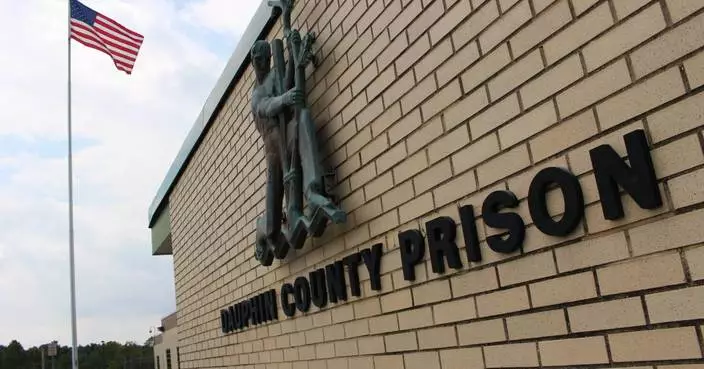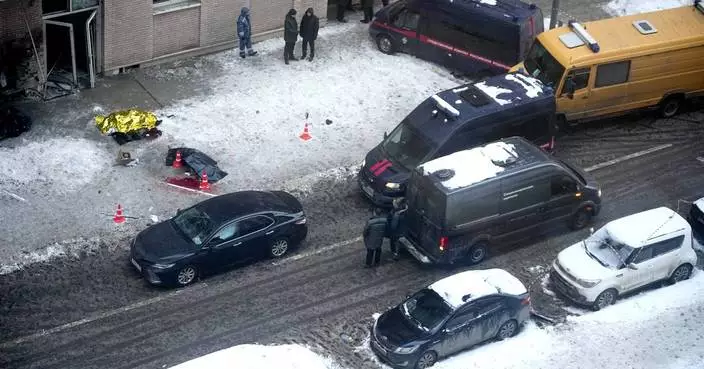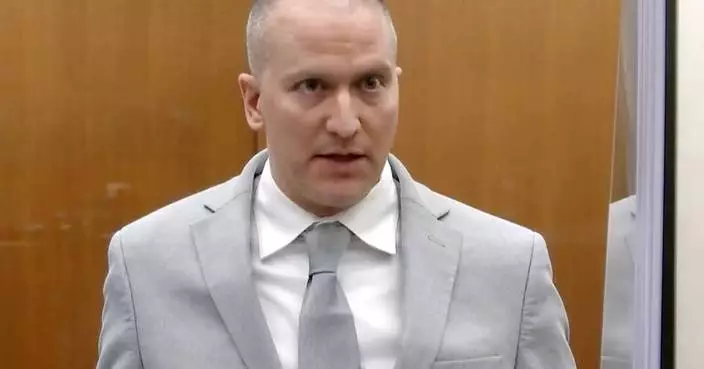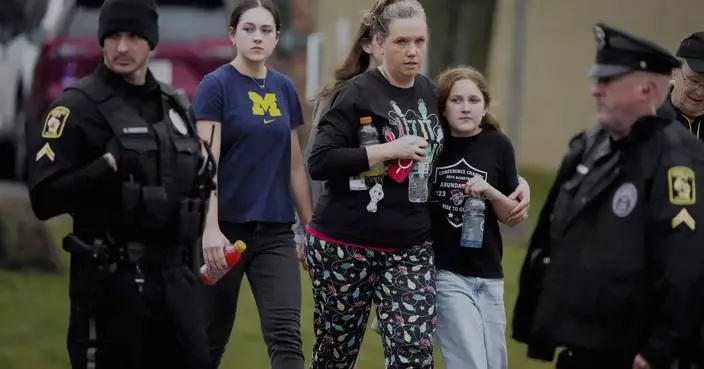RIVERHEAD, N.Y. (AP) — The New York architect facing murder charges in a string of deaths known as the Gilgo Beach killings was charged on Tuesday in the death of a seventh woman.
Rex Heuermann pleaded not guilty to killing Valerie Mack, whose remains were first found on Long Island in 2000. Mack, 24, had been working as an escort in Philadelphia and was last seen by her family that year in New Jersey.
Click to Gallery
FILE - Rex Heuermann, center, charged in the Gilgo Beach serial killings on Long Island, appears for a hearing, Tuesday, July 30, 2024, at Suffolk County Court in Riverhead, N.Y. (James Carbone/Newsday via AP, File, Pool)
Rex A. Heuermann stands with his lawyer Michael Brown during a court hearing where he was charged with killing Valerie Mack, inside Supreme Court Justice Timothy Mazzei's courtroom at Suffolk County Court in Riverhead, N.Y. on Tuesday, Dec. 17, 2024. (James Carbone/Newsday via AP, Pool)
Rex A. Heuermann stands with his lawyer Michael Brown during a court hearing where he was charged with killing Valerie Mack, inside Supreme Court Justice Timothy Mazzei's courtroom at Suffolk County Court in Riverhead, N.Y. on Tuesday, Dec. 17, 2024. (James Carbone/Newsday via AP, Pool)
Rex A. Heuermann speaks during a court proceeding inside Supreme Court Justice Timothy Mazzei's courtroom at Suffolk County Court in Riverhead, N.Y. on Tuesday, Dec. 17, 2024. (James Carbone/Newsday via AP, Pool)
Rex A. Heuermann speaks with his lawyer Michael Brown during a court hearing where he was charged in the killing of Valerie Mack, inside Supreme Court Justice Timothy Mazzei's courtroom at Suffolk County Court in Riverhead, N.Y. on Tuesday, Dec. 17, 2024. (James Carbone/Newsday via AP, Pool)
FILE - This undated photo provided by the Suffolk County, New York, Police Department, Thursday May 28, 2020, shows Valerie Mack who went missing in 2000. The New York architect accused in a string of deaths known as the Gilgo Beach killings has been charged in the death of a seventh woman. Rex Heuermann was charged Tuesday with killing Valerie Mack. (Suffolk County Police Department via AP, File)
FILE - Rex Heuermann, center, charged in the Gilgo Beach serial killings on Long Island, appears for a hearing, Tuesday, July 30, 2024, at Suffolk County Court in Riverhead, N.Y. (James Carbone/Newsday via AP, File, Pool)
FILE - Suffolk County District Attorney Ray Tierney speaks to reporters during a news conference in Riverhead, N.Y., Thursday, June 6, 2024. Rex Heuermann, the New York architect accused of killing four women and leaving their bodies near Long Island's Gilgo Beach, has been accused in the deaths of two more women. (AP Photo/Seth Wenig, File)
Some of Mack’s skeletal remains were initially discovered in Manorville, New York; authorities found more of her remains about 50 miles (80 kilometers) west, in Gilgo Beach, more than 10 years later. They were unidentified until genetic testing revealed her identity in 2020.
Human hair found with Mack’s remains was sent for testing earlier this year and found to be a likely match with the genetic profile of Heuermann’s daughter, prosecutors said in court papers. His daughter is not accused of any wrongdoing and would have been 3 or 4 years old when Mack died.
Heuermann, 61, is charged with killing six other women whose remains were found on Long Island. He has pleaded not guilty to all the charges.
“The lives of these women matter. We, as investigators, understand that. No one understands that more than the families,” Suffolk County District Attorney Ray Tierney said at a news conference with Mack's parents and other victims' relatives.
Mack's parents didn't speak. But four other victims' relatives gave the Macks roses and hugs and, through an attorney, expressed their sadness and solidarity.
“They were, and they are, loved. And they are missed every day by those who knew them and who had a strong bond with them,” said Gloria Allred, who represents the families of Melissa Barthelemy, Maureen Brainard-Barnes, Jessica Taylor and Megan Waterman.
Outside of court, Heuermann’s lawyer Michael Brown disputed the evidence presented in Mack’s death, noting that hair samples collected from Mack’s body were recovered more than a year ago and saying the DNA technology used to connect her and other victims to his client has never been deemed reliable in a New York case.
He also argued that Tierney’s office has yet to produce any proof any victims’ DNA was found in Heuermann’s home, including the many weapons and tools seized during recent searches of the property.
“There’s something a little weird about these allegations,” Brown said. “Something that doesn’t sit right.”
The investigation into the Gilgo Beach killings dates back to 2010, when police searching for a missing woman found 10 sets of human remains in the scrub along a barrier island parkway, prompting fears of a serial killer.
Over the years, investigators used DNA analysis and other clues to identify the victims, many of whom were sex workers. In some cases, authorities connected them to remains found elsewhere on Long Island years earlier. Police also began reexamining other unsolved killings of women found dead on Long Island.
The case has dragged on through five police commissioners, more than 1,000 tips, and doubts about whether there was a serial killer at all.
Heuermann, who lived with his wife and two children in Massapequa Park on Long Island and commuted to a Manhattan architecture office, was arrested on July 13, 2023. At that point, he was charged with murdering Barthelemy, Waterman and Amber Lynn Costello.
Earlier this year, he was charged in the deaths of three other women — Brainard-Barnes, Taylor and Sandra Costilla.
In a June court filing, prosecutors said they had recovered a file on a hard drive in Heuermann’s basement that he used to “methodically blueprint” his killings — including checklists with tasks to tick off before, during and afterward, as well as lessons for “next time.”
In court papers on Tuesday, prosecutors said the document, which was created the same year as Mack’s murder, includes details that align with her case.
For example, it names “Mill Road” — a road near where Mack’s first remains were found — under the heading “DS,” which investigators believe stands for “dump site.”
The document also lists “foam drain cleaner” under “Supplies.” Prosecutors say that on Oct. 3, 2000, Heuermann’s phone records appear to show him making two calls to a Long Island plumbing company, and he paid another company the following month to check his mainline drain.
In recent searches of Heuermann’s home and office, authorities say they found old magazines and newspapers with articles about the Gilgo Beach killings and investigation that prosecutors believe he kept as “souvenirs” or “mementos.” Among them was a July 29, 2003, copy of the New York Post that included an article about the investigation into Mack and Taylor’s remains.
Investigators say evidence points to Heuermann’s home as the scene of the killings — in most cases, when his family was out of town. Tierney said authorities don’t know where his relatives were when Mack was killed.
Prosecutors are also looking into the death of Karen Vergata, whose remains were first discovered in 1996 and finally identified in 2022 after a new DNA analysis.
In September, authorities released new renderings of an unidentified victim who was found in 2011. Officials said the victim, whom for years they had identified as male, may have presented outwardly as female and died in 2006.
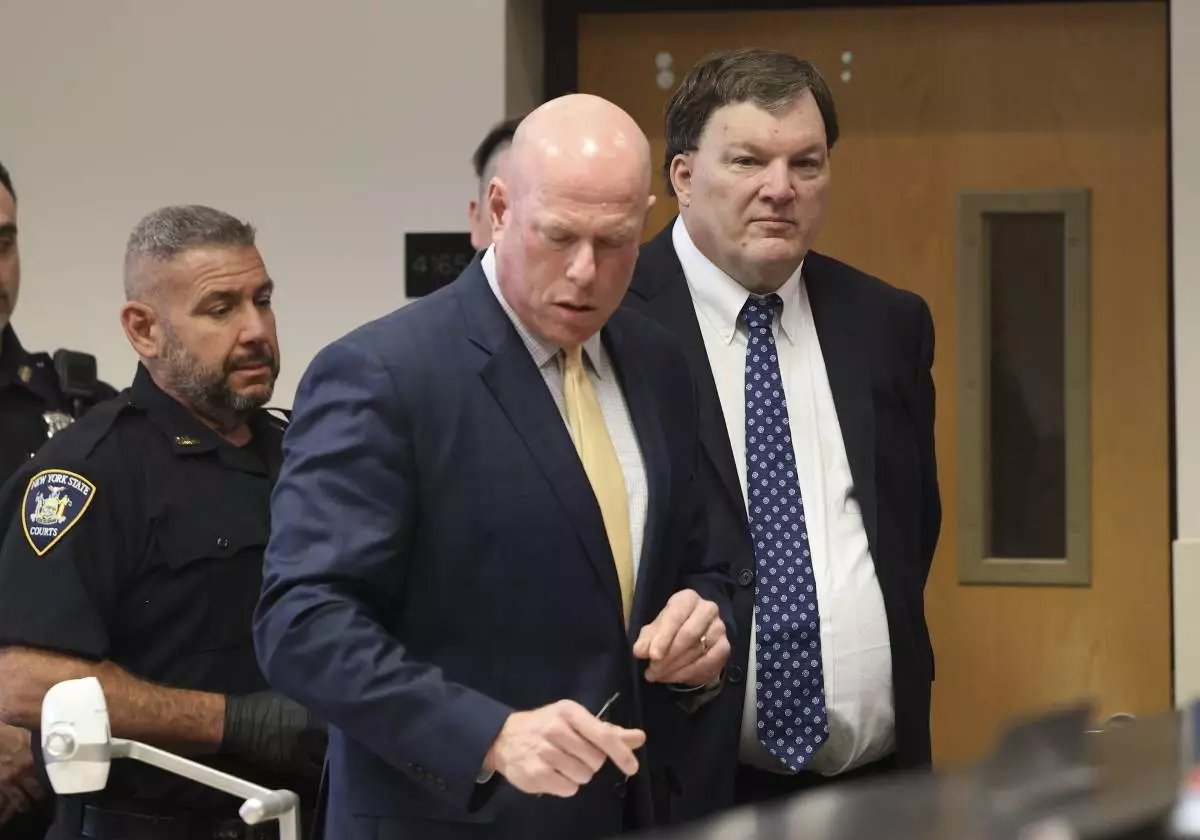
Rex A. Heuermann stands with his lawyer Michael Brown during a court hearing where he was charged with killing Valerie Mack, inside Supreme Court Justice Timothy Mazzei's courtroom at Suffolk County Court in Riverhead, N.Y. on Tuesday, Dec. 17, 2024. (James Carbone/Newsday via AP, Pool)
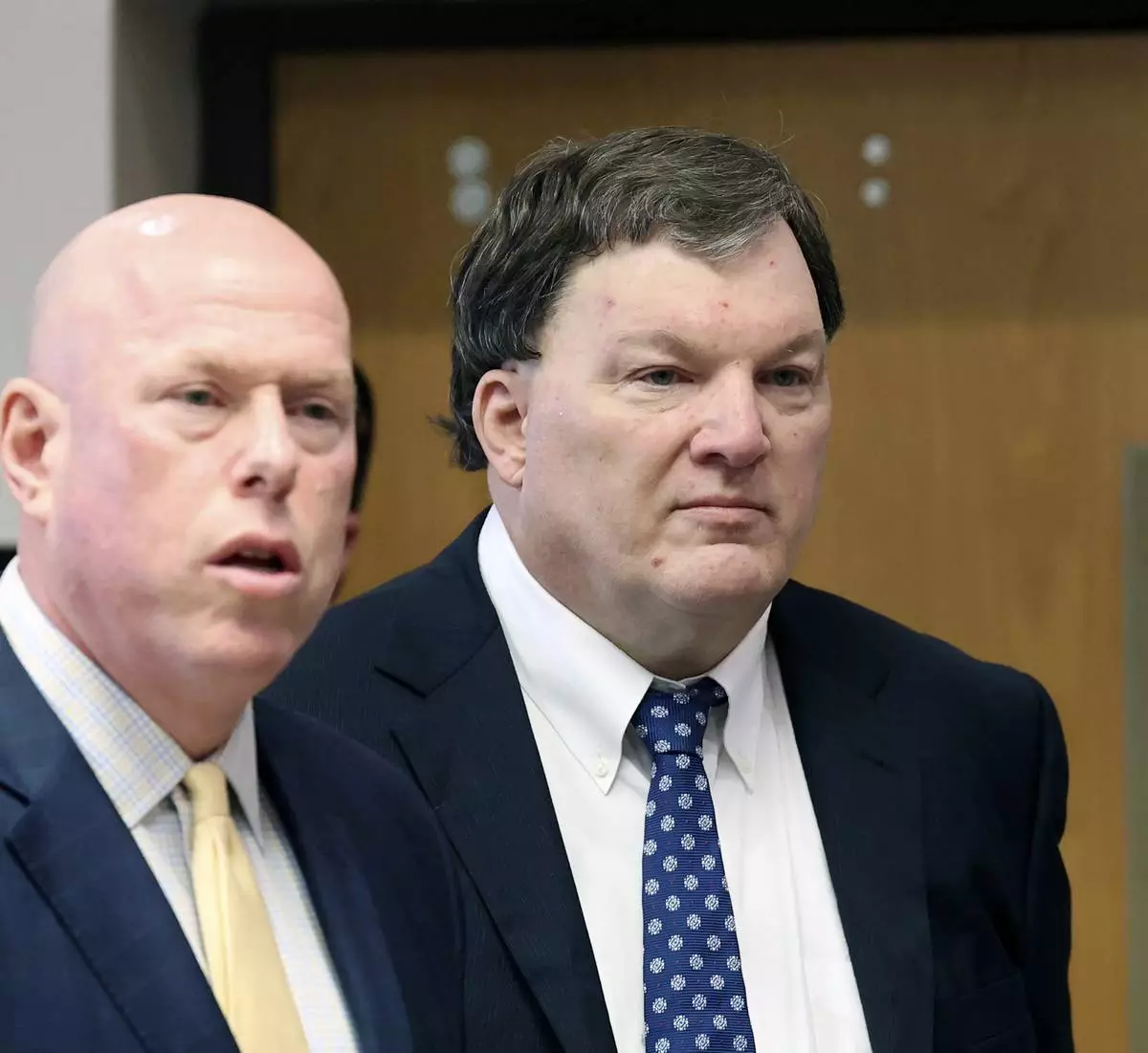
Rex A. Heuermann stands with his lawyer Michael Brown during a court hearing where he was charged with killing Valerie Mack, inside Supreme Court Justice Timothy Mazzei's courtroom at Suffolk County Court in Riverhead, N.Y. on Tuesday, Dec. 17, 2024. (James Carbone/Newsday via AP, Pool)
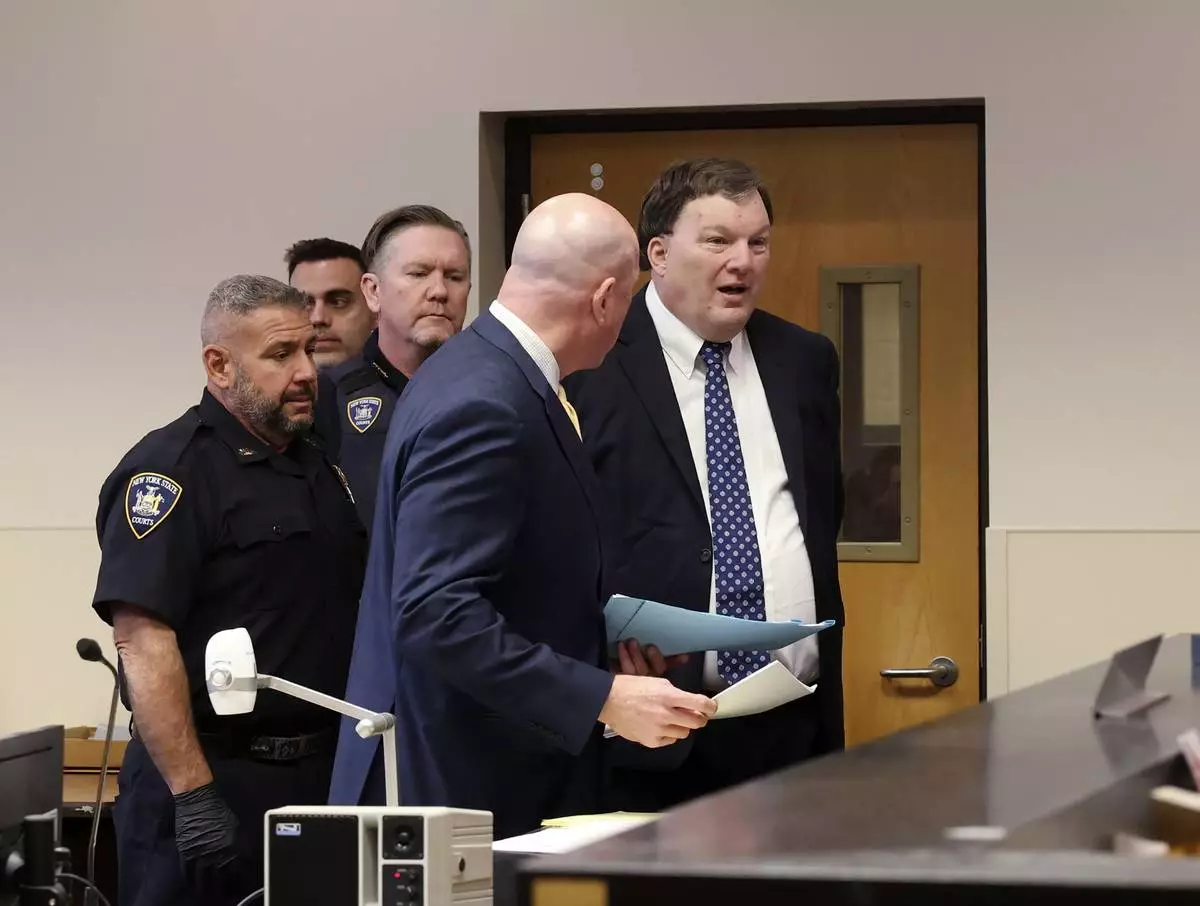
Rex A. Heuermann speaks during a court proceeding inside Supreme Court Justice Timothy Mazzei's courtroom at Suffolk County Court in Riverhead, N.Y. on Tuesday, Dec. 17, 2024. (James Carbone/Newsday via AP, Pool)
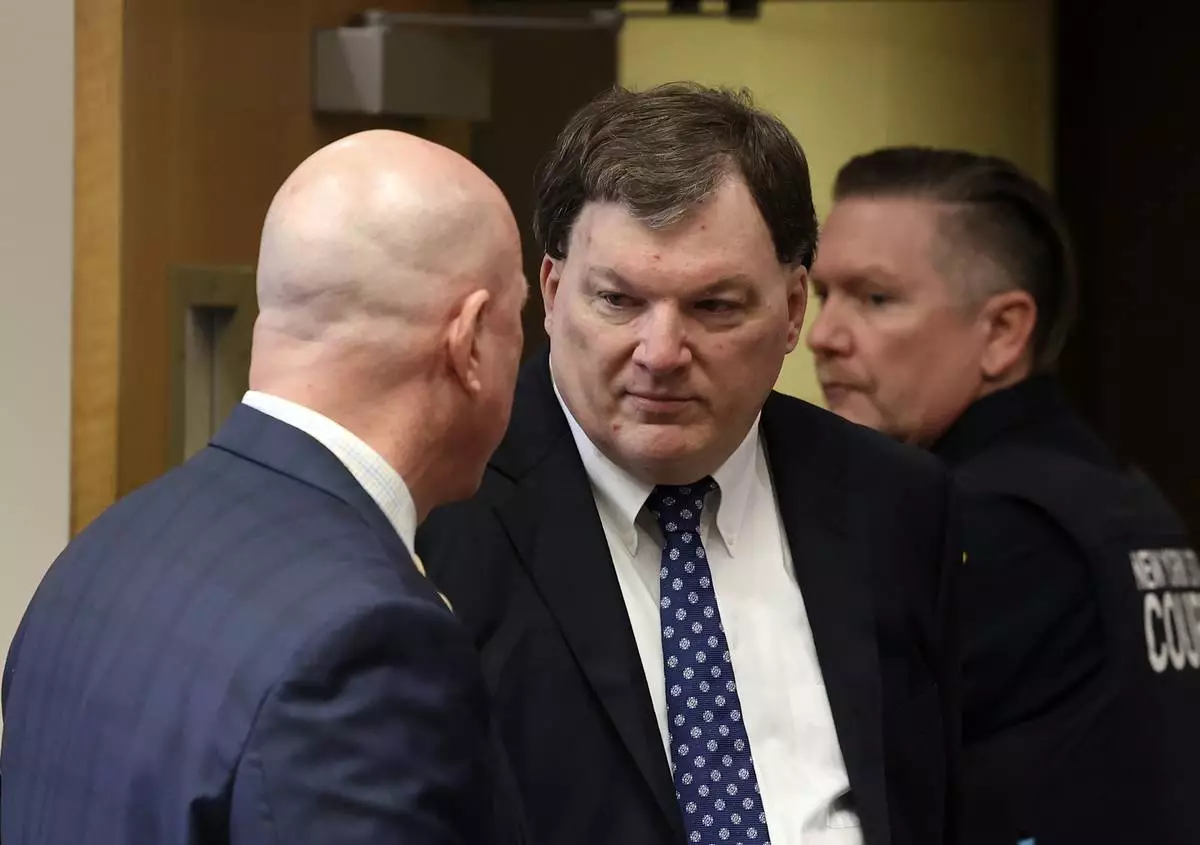
Rex A. Heuermann speaks with his lawyer Michael Brown during a court hearing where he was charged in the killing of Valerie Mack, inside Supreme Court Justice Timothy Mazzei's courtroom at Suffolk County Court in Riverhead, N.Y. on Tuesday, Dec. 17, 2024. (James Carbone/Newsday via AP, Pool)
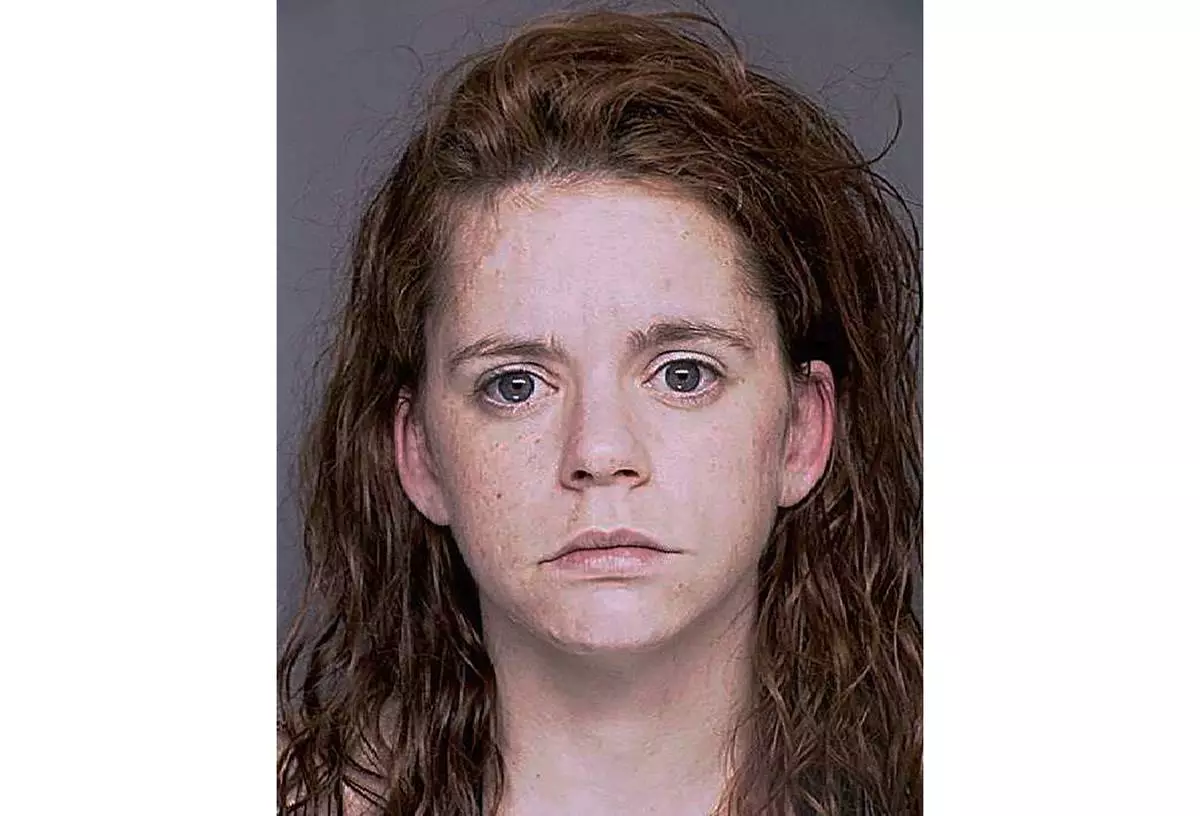
FILE - This undated photo provided by the Suffolk County, New York, Police Department, Thursday May 28, 2020, shows Valerie Mack who went missing in 2000. The New York architect accused in a string of deaths known as the Gilgo Beach killings has been charged in the death of a seventh woman. Rex Heuermann was charged Tuesday with killing Valerie Mack. (Suffolk County Police Department via AP, File)
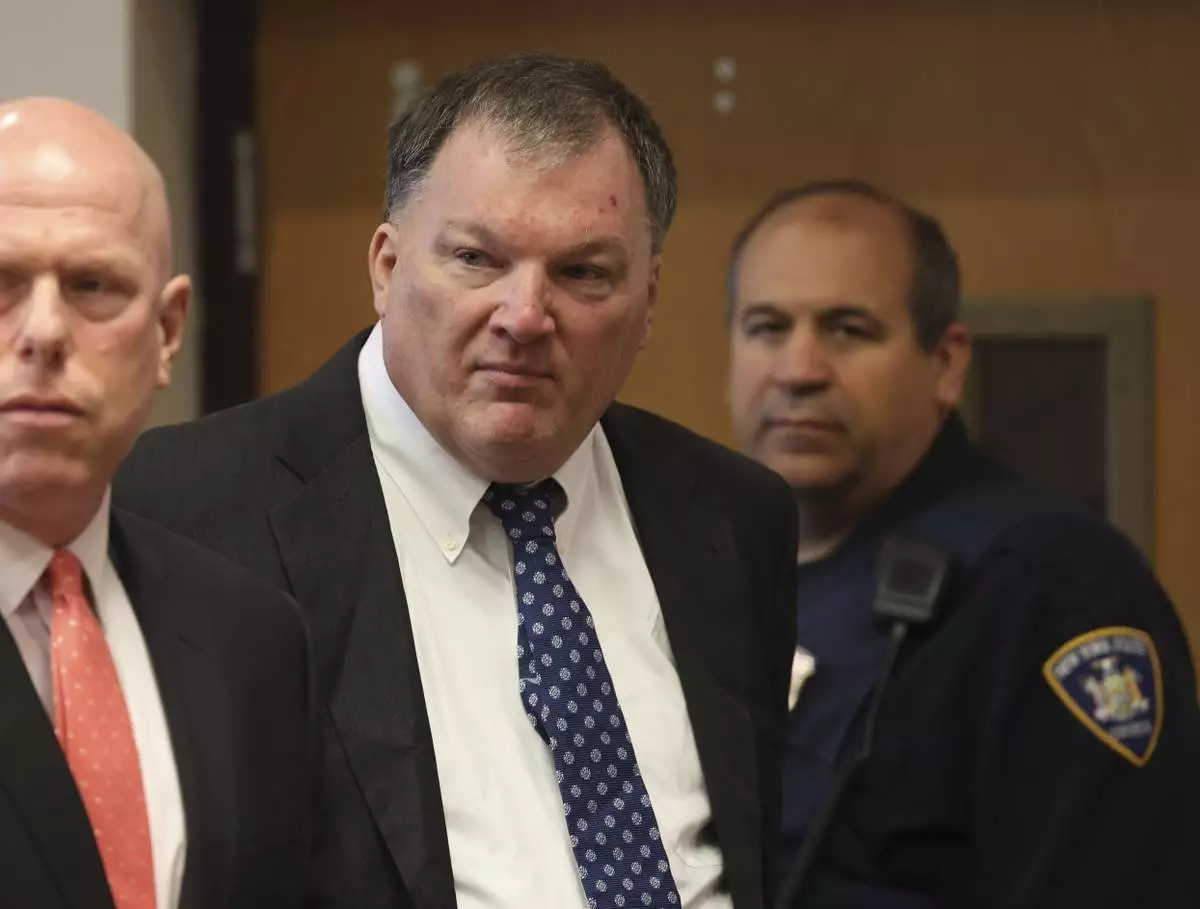
FILE - Rex Heuermann, center, charged in the Gilgo Beach serial killings on Long Island, appears for a hearing, Tuesday, July 30, 2024, at Suffolk County Court in Riverhead, N.Y. (James Carbone/Newsday via AP, File, Pool)
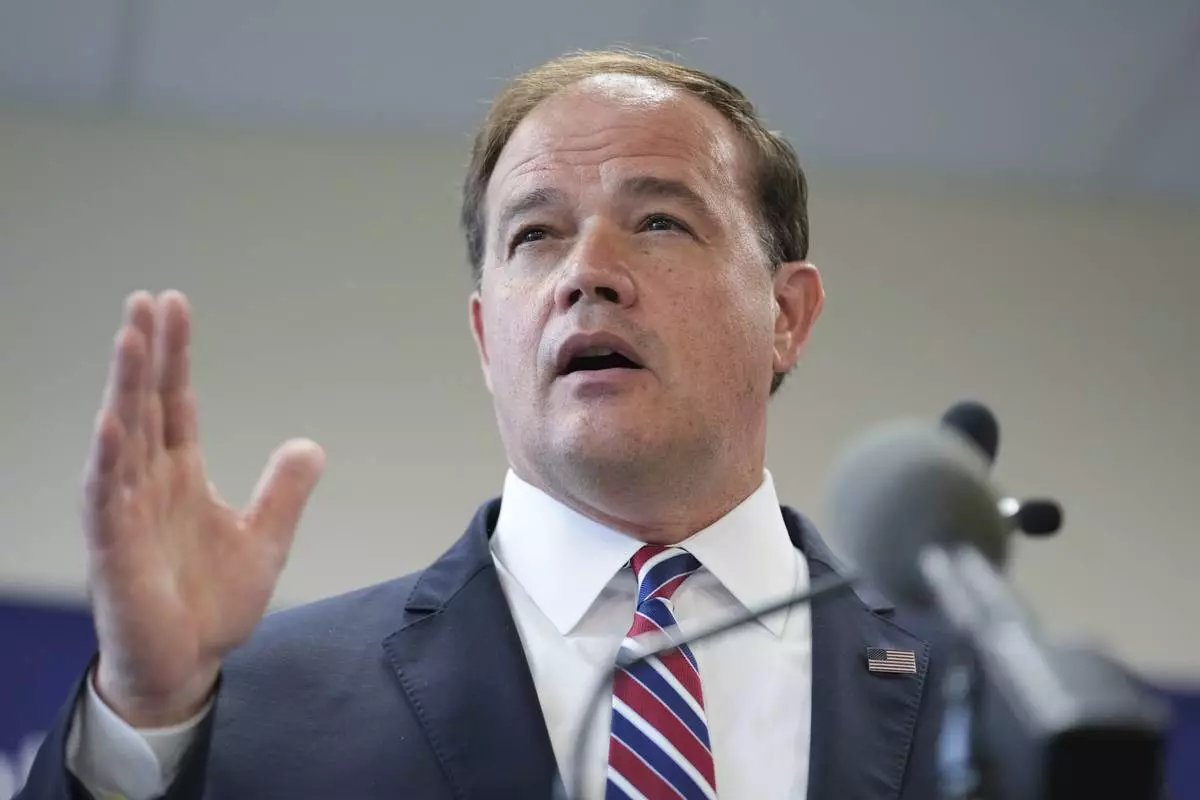
FILE - Suffolk County District Attorney Ray Tierney speaks to reporters during a news conference in Riverhead, N.Y., Thursday, June 6, 2024. Rex Heuermann, the New York architect accused of killing four women and leaving their bodies near Long Island's Gilgo Beach, has been accused in the deaths of two more women. (AP Photo/Seth Wenig, File)
MICHIGAN CITY, Indiana (AP) — An Indiana man convicted in the 1997 killings of his brother and three other people is set to receive a lethal injection by early Wednesday in the state's first execution in 15 years, without any independent witness present under the state's laws shielding information about the death penalty.
Joseph Corcoran, 49, has been on death row since 1999, the year he was convicted in the shootings of his brother, James Corcoran, 30; his sister's fiancé, Robert Scott Turner, 32; and two other men: Timothy G. Bricker, 30, and Douglas A. Stillwell, 30.
Indiana is one of only two states, along with Wyoming, that do not allow members of the press to witness state executions, according to a recent report by the Death Penalty Information Center.
Barring last-minute court action or intervention by Gov. Eric Holcomb, Corcoran is set to be put to death before sunrise Wednesday at the Indiana State Prison in Michigan City, according to state officials. Last summer, the governor announced the resumption of state executions after a yearslong hiatus marked by a scarcity of lethal injection drugs nationwide.
Indiana has provided few details about the process, including a specific execution time. Indiana prison officials only provided photos of the execution chamber, showing a space that looks like a sparse operating room with a gurney, bright fluorescent lighting, a floor drain and interior windows to an adjacent viewing room.
According to Indiana law, the only people allowed to be present are the prison warden, those selected to assist in the execution, the prison physician, one additional physician, the condemned person’s spiritual adviser and the prison chaplain.
Up to five friends or relatives of the person being executed and up to eight relatives of the victims of the crime are allowed to view the process.
Corcoran's attorneys have fought the death penalty sentence for years, arguing that Corcoran is severely mentally ill, which affects his ability to understand and make decisions. Corcoran exhausted his federal appeals in 2016. Earlier this month, his attorneys asked the Indiana Supreme Court to stop his execution but the request was denied.
However, attorneys say since the justices were split 3-2 that signals there's a chance.
“Given that it is a close case, it shouldn’t be rushed through,” said defense attorney Larry Komp. “He’s so extremely mentally ill. We think he’s irrational. We’ve never had a fair process.”
Attorneys have said one sign of Corcoran's mental illness includes a handwritten affidavit that he wrote to the justices this month saying he was done litigating his case.
“I am guilty of the crime I was convicted of, and accept the findings of all the appellate courts,” he wrote.
According to court records, before Corcoran fatally shot the four victims in July 1997, he was stressed because his sister's forthcoming marriage to Turner would necessitate moving out of the Fort Wayne, Indiana, home he shared with his brother and sister.
Corcoran awoke to hear his brother and others downstairs talking about him, loaded his rifle and then shot all four men, records show. While jailed, Corcoran reportedly bragged about fatally shooting his parents in 1992 in northern Indiana’s Steuben County. He was charged in their killings but acquitted.
If Corcoran is put to death as scheduled, it will be the state’s first execution since 2009. In that time, 13 executions were carried out in Indiana but those were initiated and performed by federal officials in 2020 and 2021 at a federal prison in Terre Haute.
Indiana’s last state execution was in 2009 when Matthew Wrinkles was put to death for killing his wife, her brother and sister-in-law in 1994.
State officials have said they couldn’t continue executions because a combination of drugs used in lethal injections had become unavailable.
For years, there has been a shortage across the country because pharmaceutical companies have refused to sell their products for that purpose. That’s pushed states, including Indiana, to turn to compounding pharmacies, which manufacture drugs specifically for a client. Some use more accessible drugs such as the sedatives pentobarbital or midazolam — both of which, critics say, can cause intense pain.
Indiana is planning to use pentobarbital to execute Corcoran, and, like many states, is refusing to divulge where it got the drugs. When asked how the state obtained the pentobarbital it plans to use in Corcoran’s execution, the Indiana Department of Correction directed The Associated Press to a state law labeling the source of lethal injection drugs as confidential.
Last week, Corcoran's attorneys filed a petition in the U.S. District Court of Northern Indiana asking the court to stop the execution and hold a hearing to decide if it would be unconstitutional because Corcoran has a serious mental illness. They cited “severe and longstanding paranoid schizophrenia.” But the court rejected the bid to intervene on Friday, prompting attorneys to file an appeal with the U.S. Court of Appeals for the 7th Circuit.
Multiple groups, including religious groups and disability rights advocates, have opposed the execution. Several activists were planning a vigil starting late Tuesday outside the prison, about 60 miles (90 kilometers) east of Chicago.
In early December, Indiana Disability Rights asked the governor to commute Corcoran’s sentence to life imprisonment without the possibility of parole.
Holcomb recently said he would let the legal process “play out” in Corcoran's case before deciding whether to intervene.
One of Corcoran’s sisters, Kelly Ernst, who lost both a brother and her fiancé in the 1997 shootings, said she believes the death penalty should be abolished and her brother’s execution won’t solve or change anything. She is not planning to be present for the execution.
Ernst said she had been out of contact with her brother for 10 years until recently.
“I’m at a loss for words. I’m just really upset that they’re doing it close to Christmas,” she said. “My sister and I, our birthdays are in December. I mean, it just feels like it’s going to ruin Christmas for the rest of our lives. That’s just what it feels like.”
Callahan reported from Indianapolis.
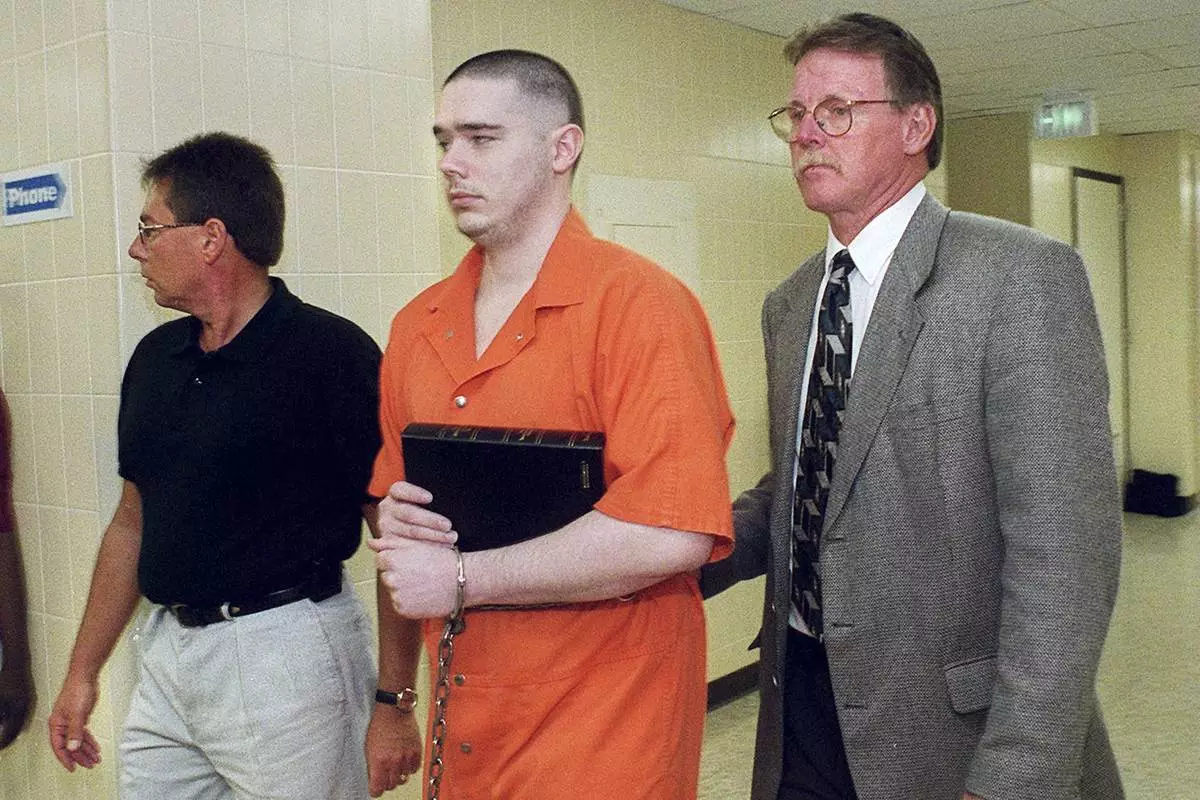
Joseph Corcoran is led to the City-County Lockup on Aug. 26, 1999, in Fort Wayne, Ind., after being sentenced to death in the slayings of four people in July 1997. (Matt Sullivan/The Journal-Gazette via AP)
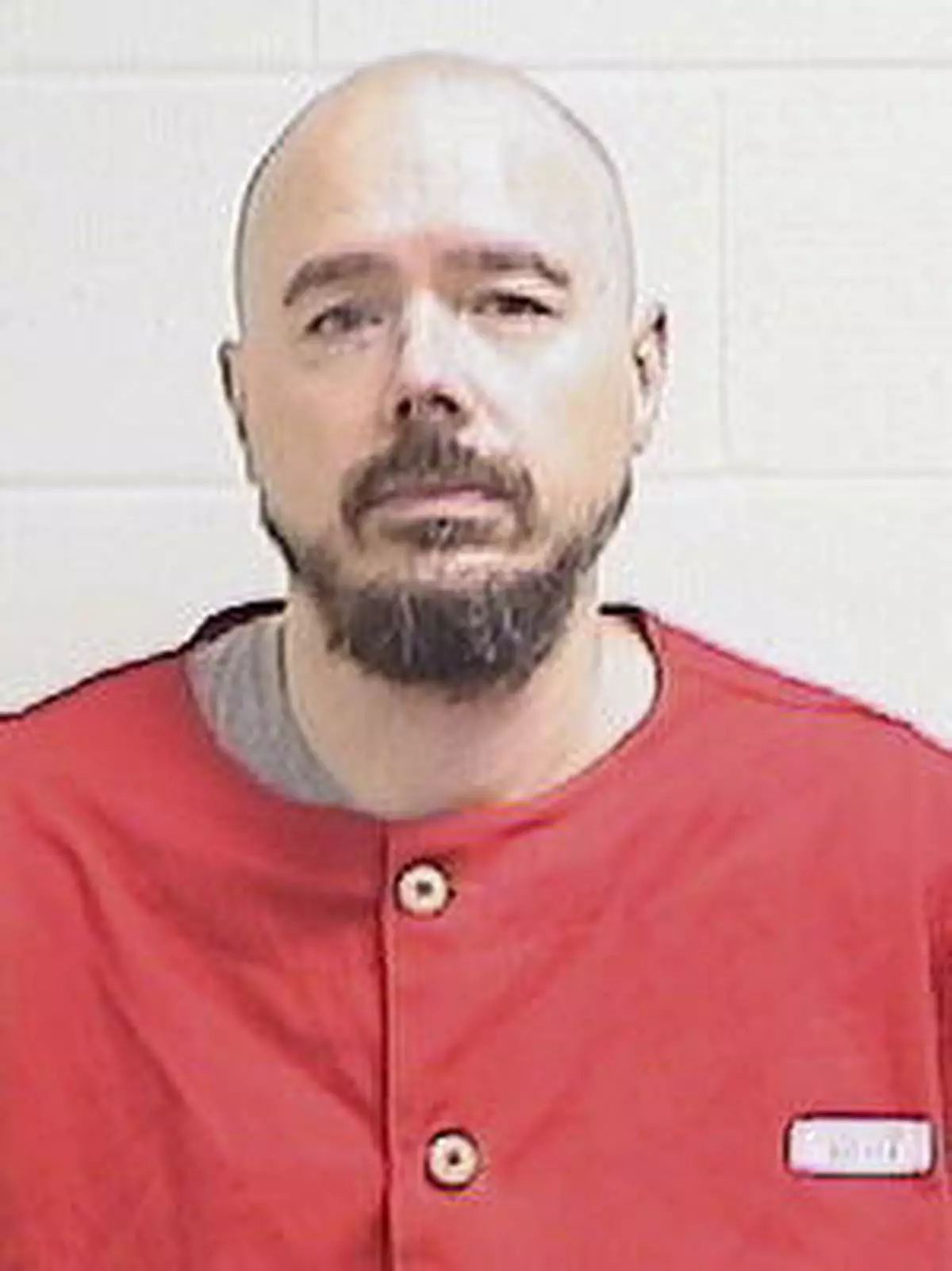
This undated photo provided by the Indiana Department of Corrections, shows Joseph Corcoran, who is scheduled to be executed before sunrise on Dec. 18, 2024. (Indiana Department of Corrections via AP)



















